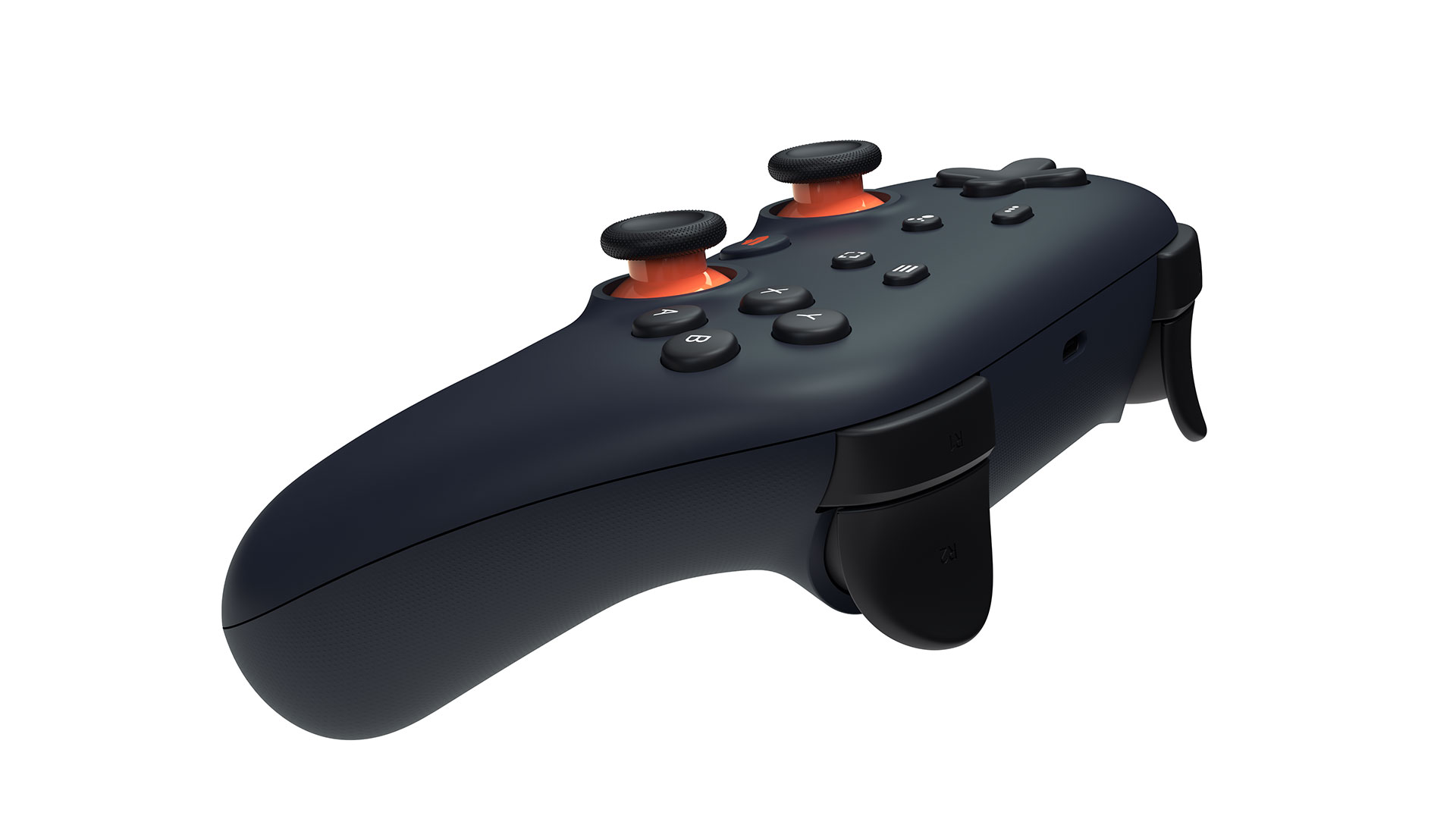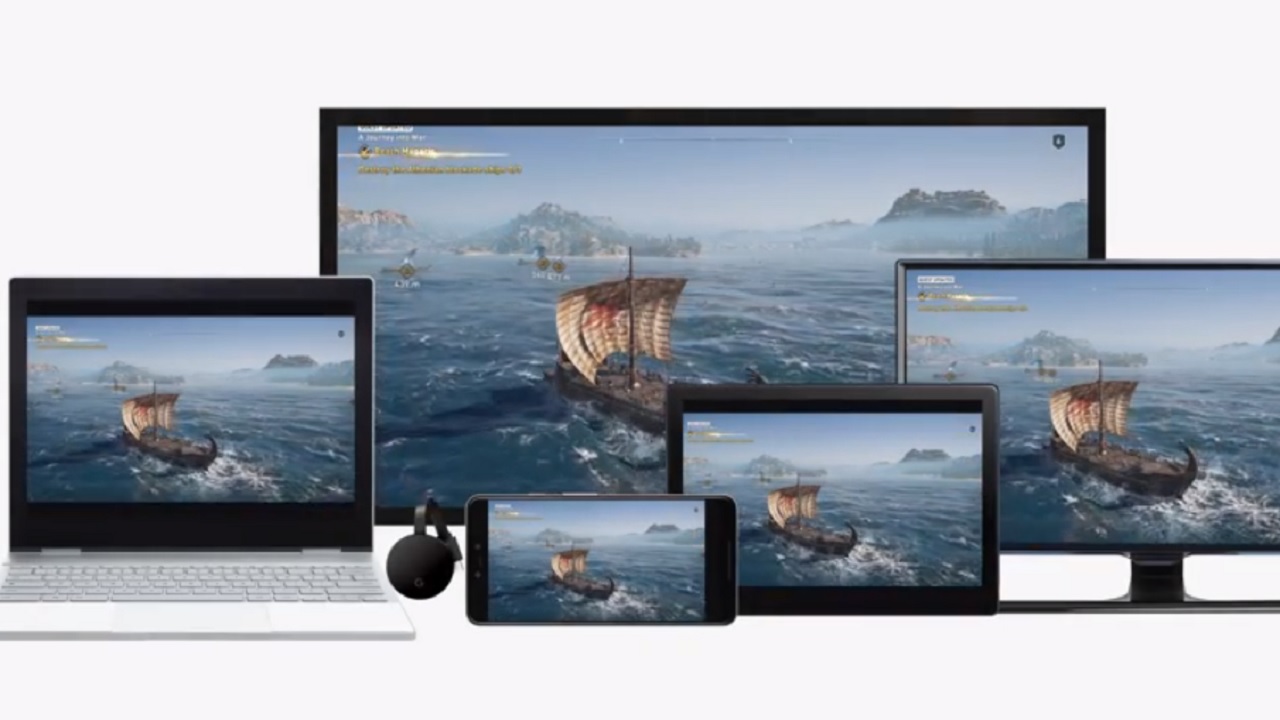I want to be sold on Stadia, but Google still hasn't given me a reason
Google Stadia needs games that I truly could not play anywhere else

I'm ready to be excited for Google Stadia. The pitch makes sense for me: give me a game service that lets me play whatever I want, wherever I want. Having shelves full of cases does nothing for me, I already opt for downloads whenever possible so I don't have to get up off the couch and change discs. I've happily crossed that first bridge, so I might as well not bother with keeping physical consoles in my home, right? All that said, it still isn't enough to get me invested in a new platform.
One of the things I love to see most in games is when new technology legitimately pushes the medium forward. The kind of leaps that go beyond "we now have higher resolution textures", the leaps that fundamentally alter the kinds of games I play: like when PlayStation pushed disc-based storage media to the fore and made games with expansive worlds and orchestrated soundtracks and full voice acting possible, or when Xbox Live became the first online multiplayer experience for millions of players, or when the Wii used motion controls to make virtual bowling instantly accessible for players of all kinds.
Everything seems aligned for The Cloud to be the next technology that pushes games forward. What could creators achieve if they had server farms full of powerful machines to give their visions life and a built-in connection between players? What kind of fantastic new things could they make for us if they were no longer constrained by the last five-year iteration of consumer-affordable hardware, yet were able to sell their products to anyone with a screen and decent internet? Thinking about the possibilities makes me feel all fluttery.
Head in the clouds
Google has its own internal development studio, Stadia Games and Entertainment, which has the best position among anyone in the world to understand and capitalize on the possibilities of Stadia as a platform. And yet, so far, we've seen absolutely nothing of what the studio is working on. We've seen Doom running at 4K. We've seen Assassin's Creed Odyssey running at 60 frames per second. We've been assured that Cyberpunk 2077 will come to the service along with a bunch of other Google Stadia games you've already heard of.

As far as I know, Orcs Must Die 3 and a handful of other third-party games are the only announced Stadia exclusives. There's no reason to think they'll stay exclusive for longer than a year at most. And I've gotta tell you – showing me nothing but a bunch of games that I'm also going to be able to play on platforms I already own is not a great way to sell me.
Somebody who doesn't already have a gaggle of gaming systems at the ready could find more value in what Google's showed us on Stadia so far, sure. That would be fine, if "core" gamers like myself weren't supposed to be leading the charge as Stadia's early adopters. The Stadia Founders' Edition will be the only way to play on Stadia for the crucial early part of the platforms' life, with the standard version following some time in 2020. With its specially colored controller and Pro subscription for superior streaming quality, the Stadia Founders Edition is being aimed right at people like me (unless there's a huge market full of people who are willing to drop $129/£119 on a controller, a Chromecast, and an early slot in an unproven gaming service that I'm not accounting for).
What would actually make me interested in Google Stadia is fascinating new games that I can't play anywhere else - new concepts that convince me, business arrangements for timed exclusives aside, that I literally could not play them anywhere else. Google still has several months to go until Stadia goes live with the Founders Edition in November, which means it still has time to deliver. But the longer it goes without talking about any games that capitalize on the seemingly boundless possibilities of its cloud gaming premise, the less convinced I'll be that I'm ever gonna need this thing.
Sign up to the GamesRadar+ Newsletter
Weekly digests, tales from the communities you love, and more
I got a BA in journalism from Central Michigan University - though the best education I received there was from CM Life, its student-run newspaper. Long before that, I started pursuing my degree in video games by bugging my older brother to let me play Zelda on the Super Nintendo. I've previously been a news intern for GameSpot, a news writer for CVG, and now I'm a staff writer here at GamesRadar.



